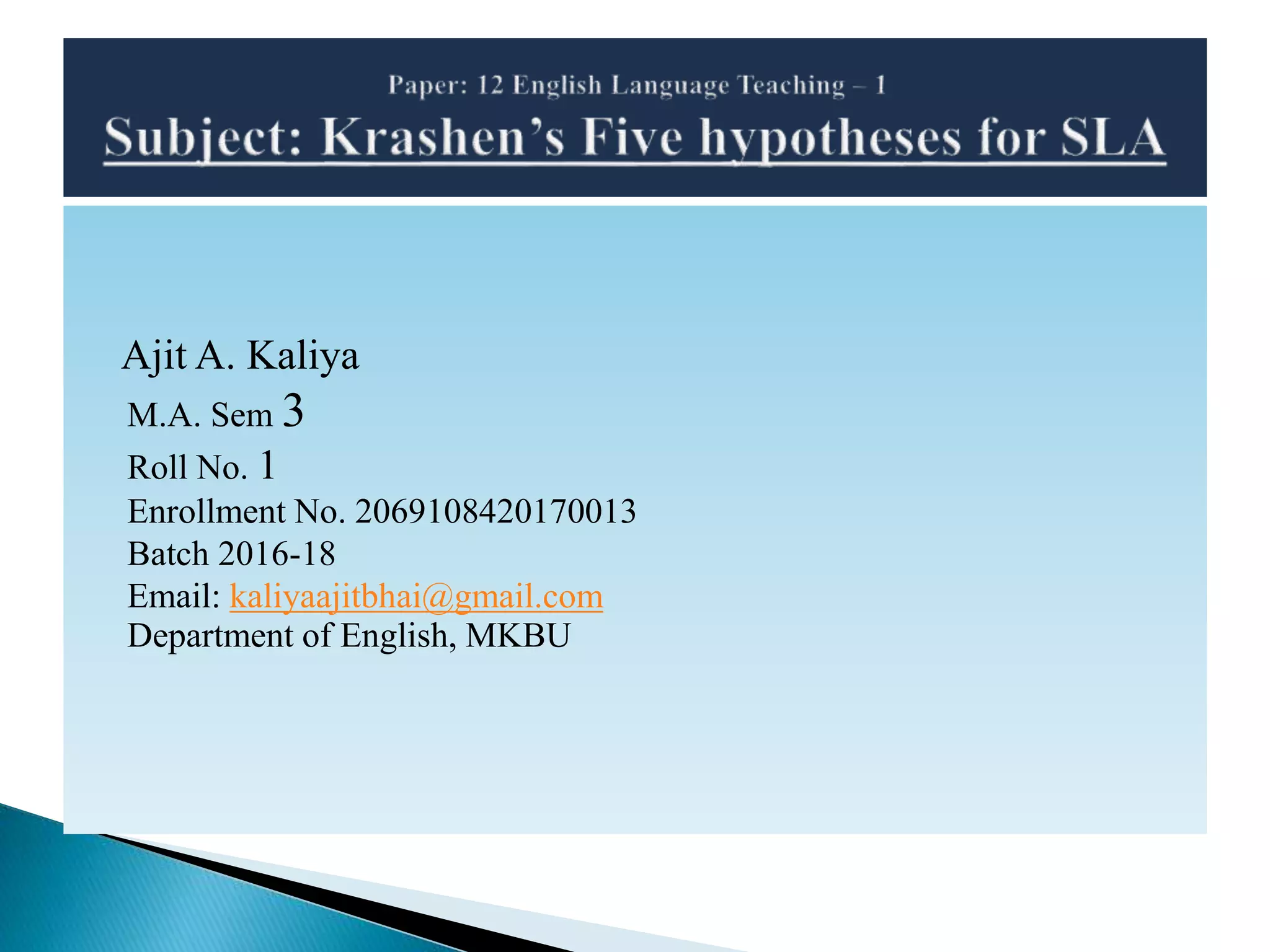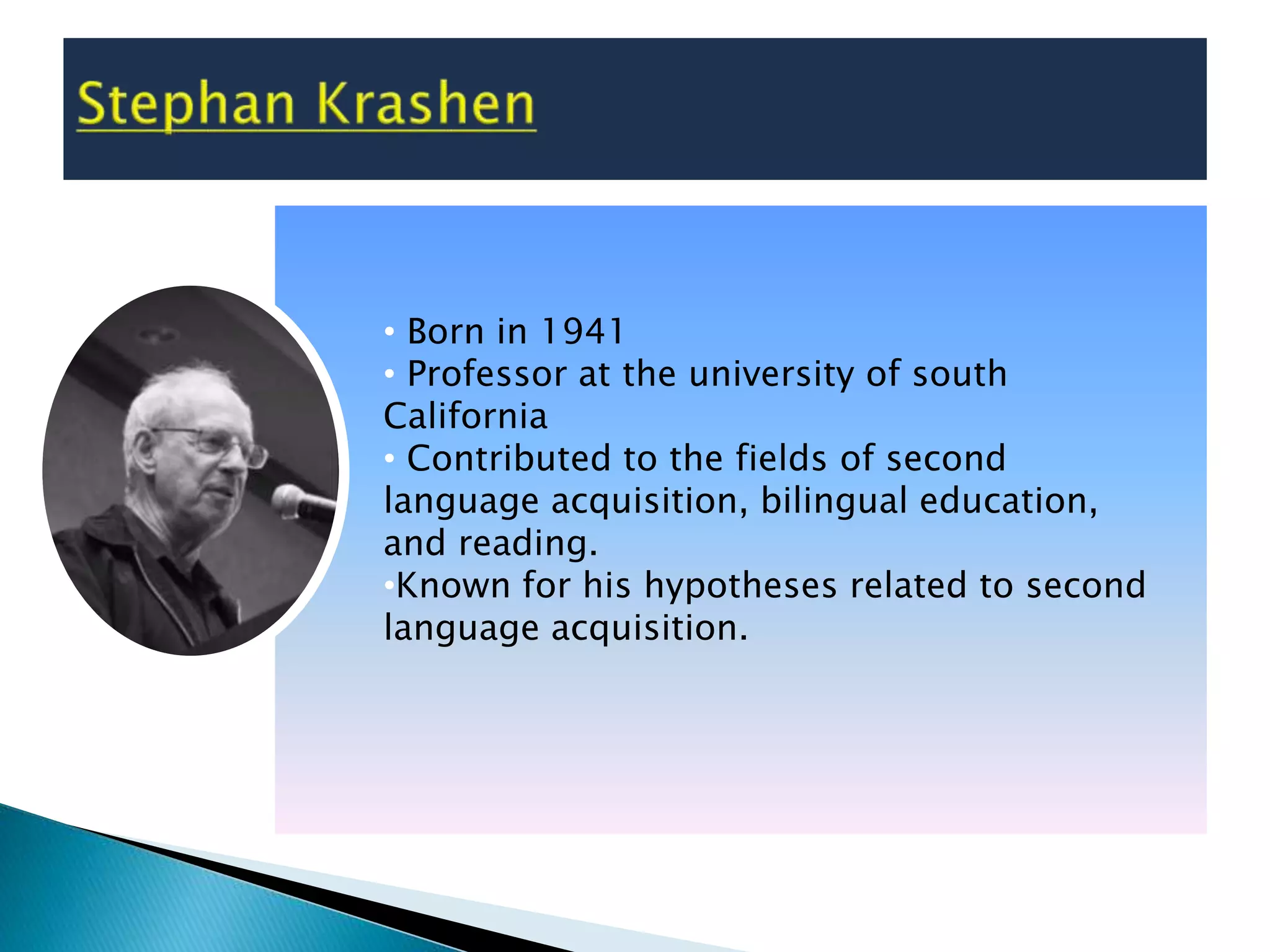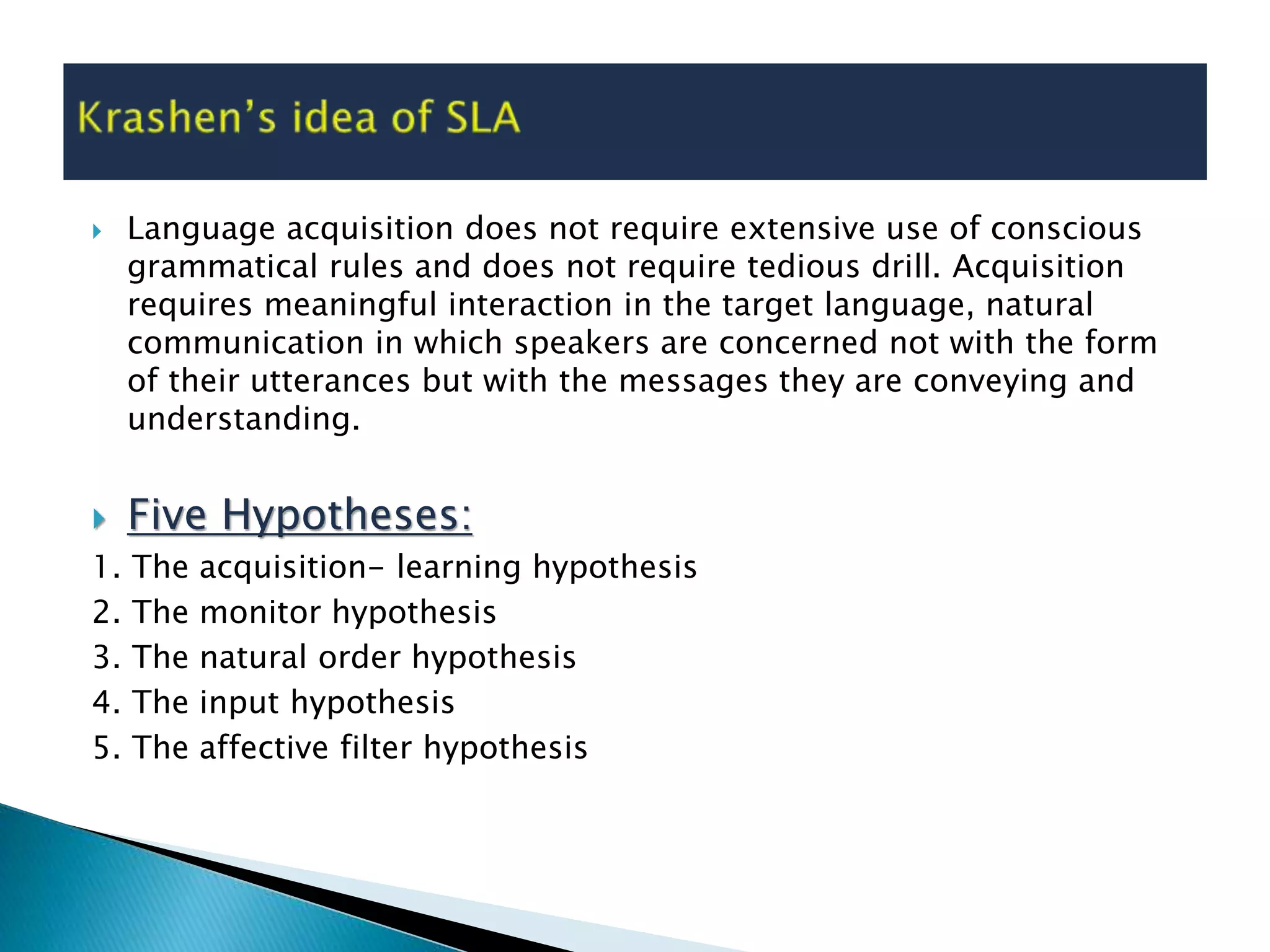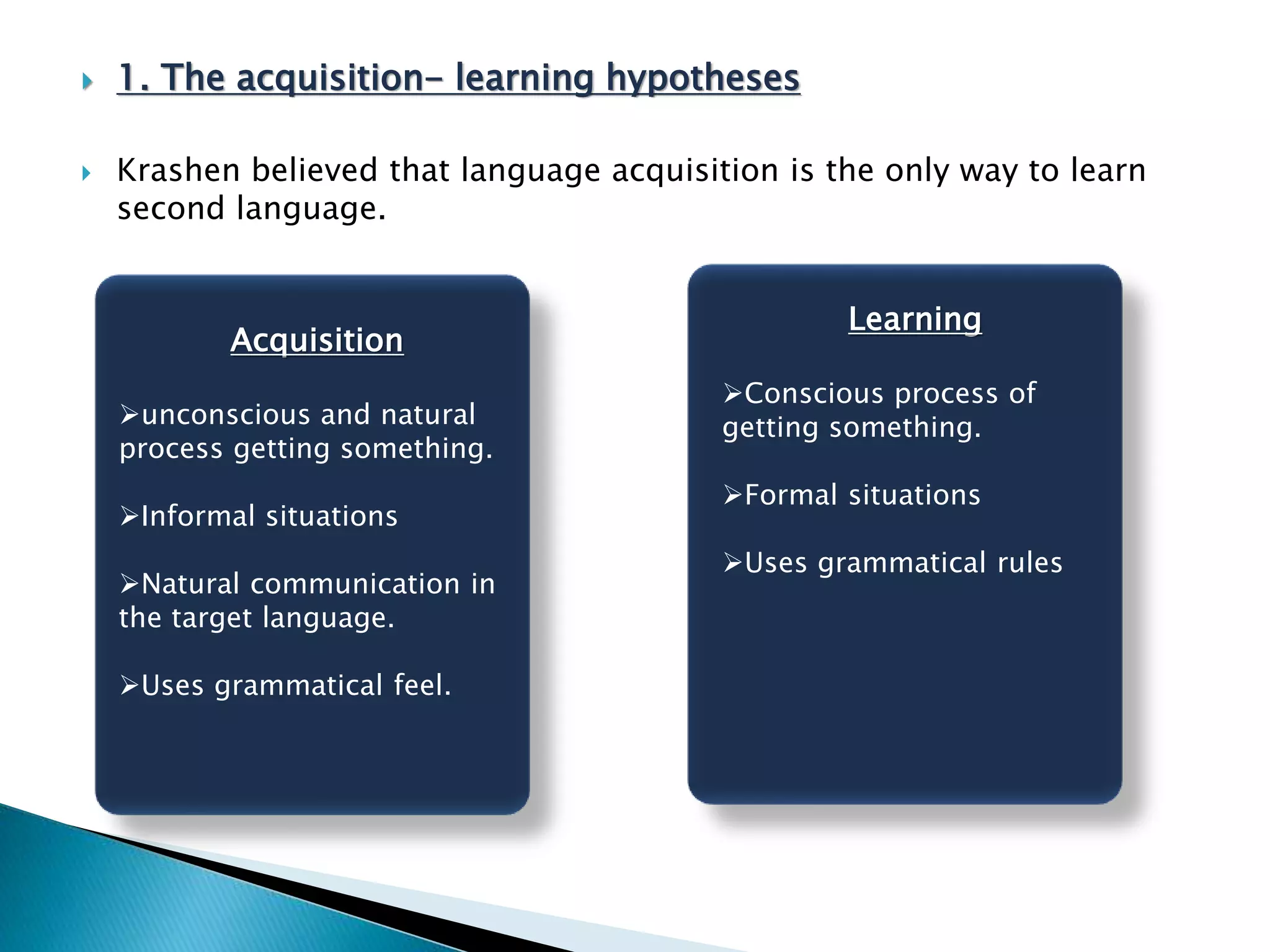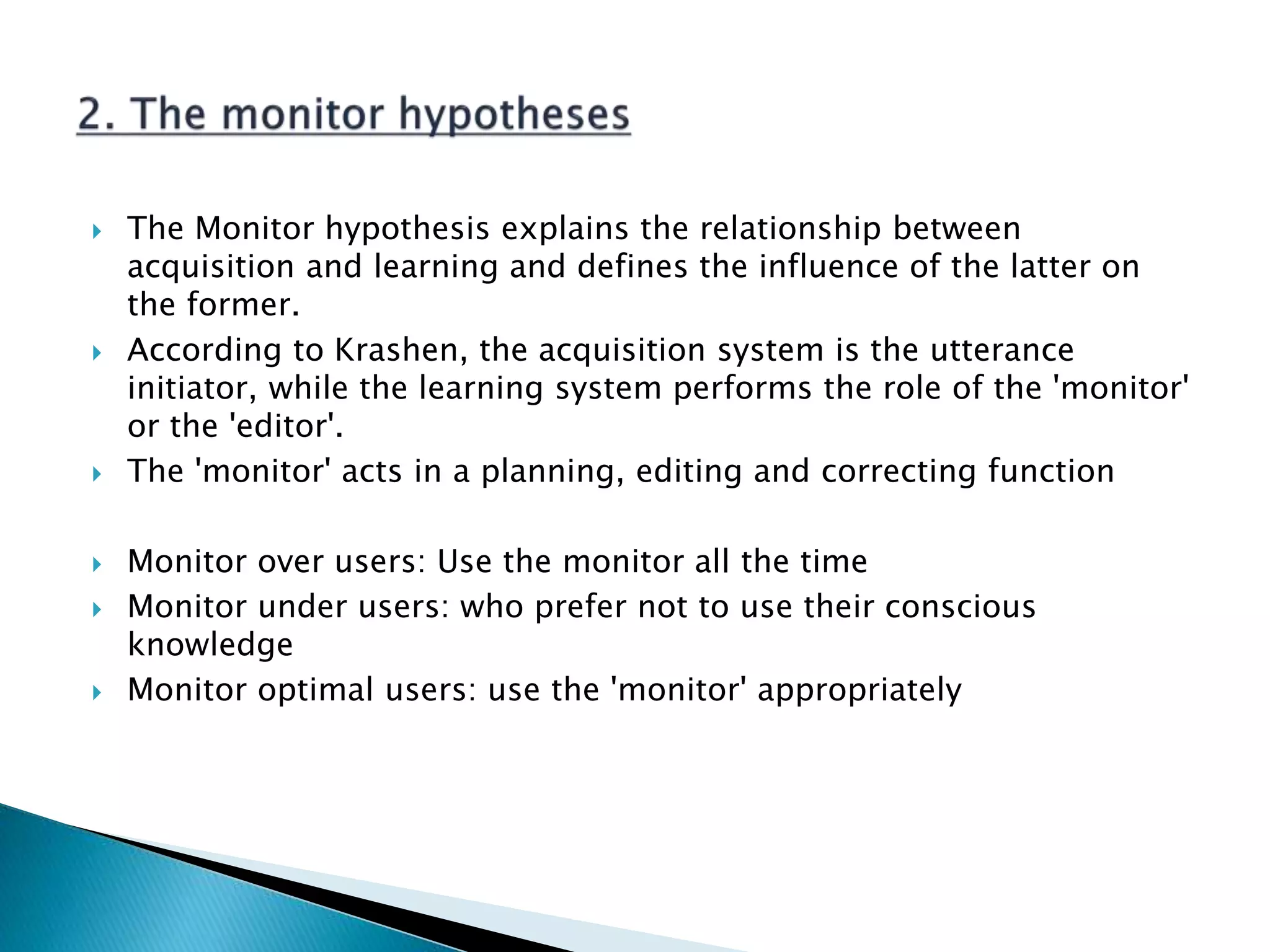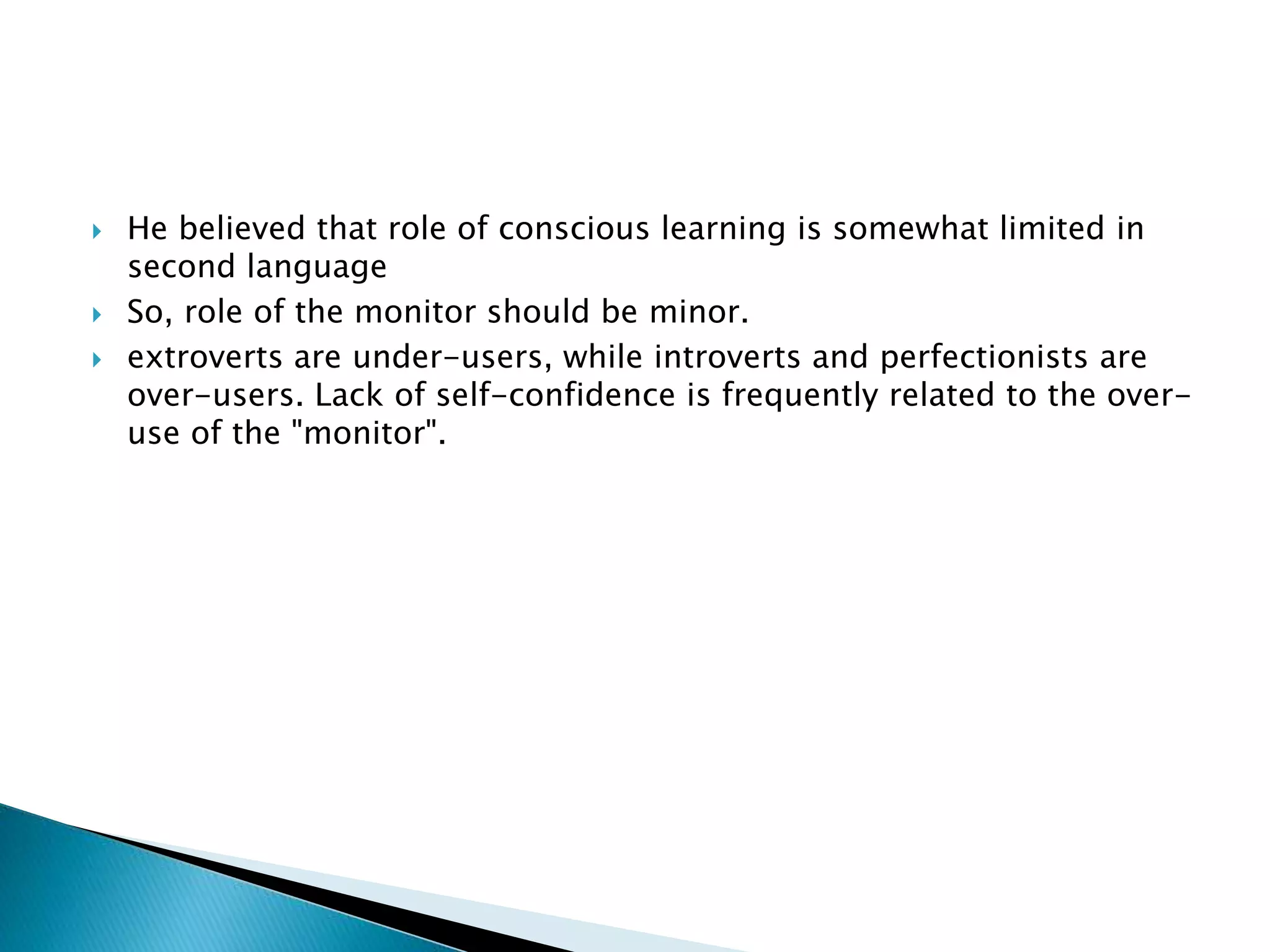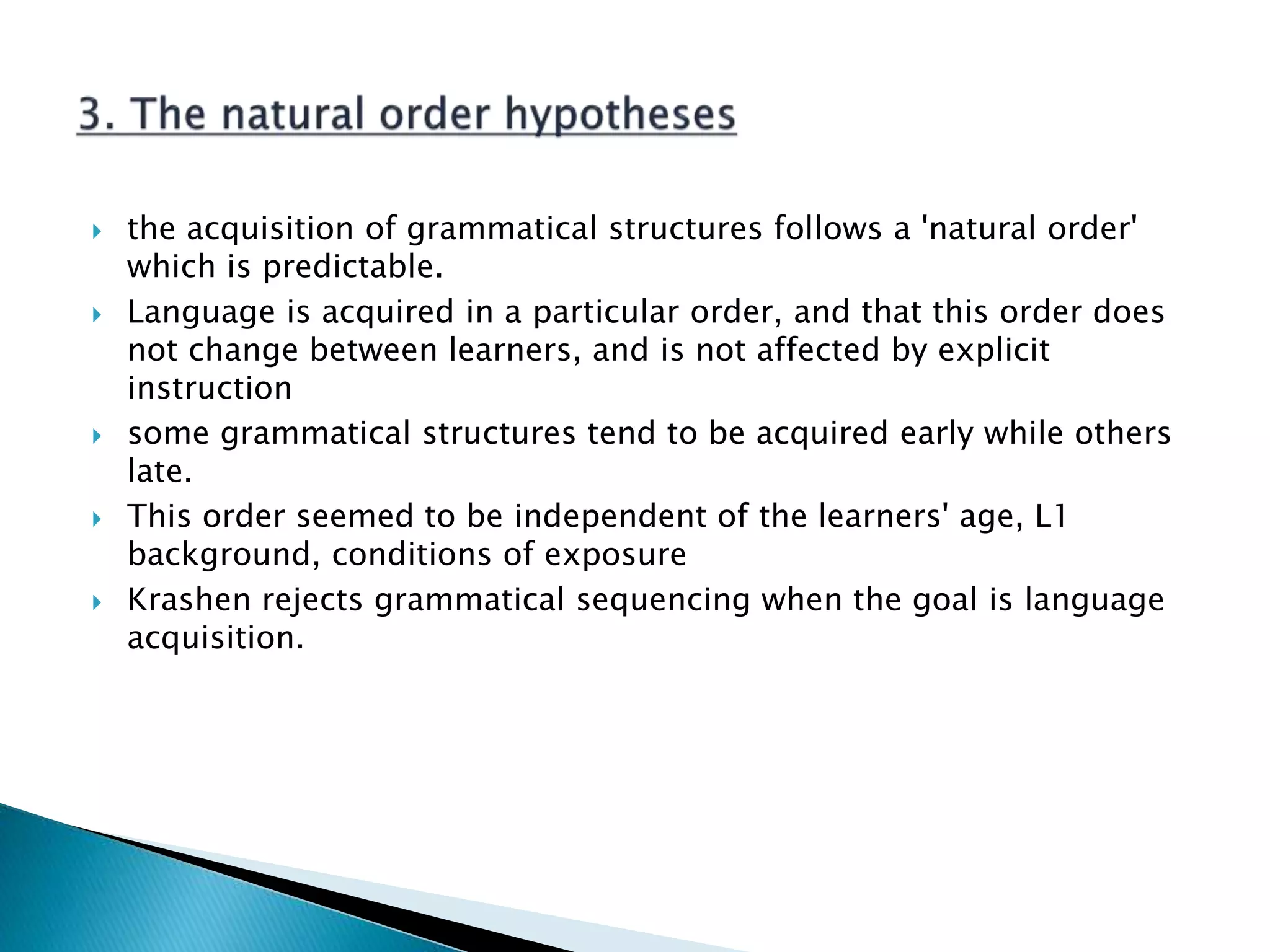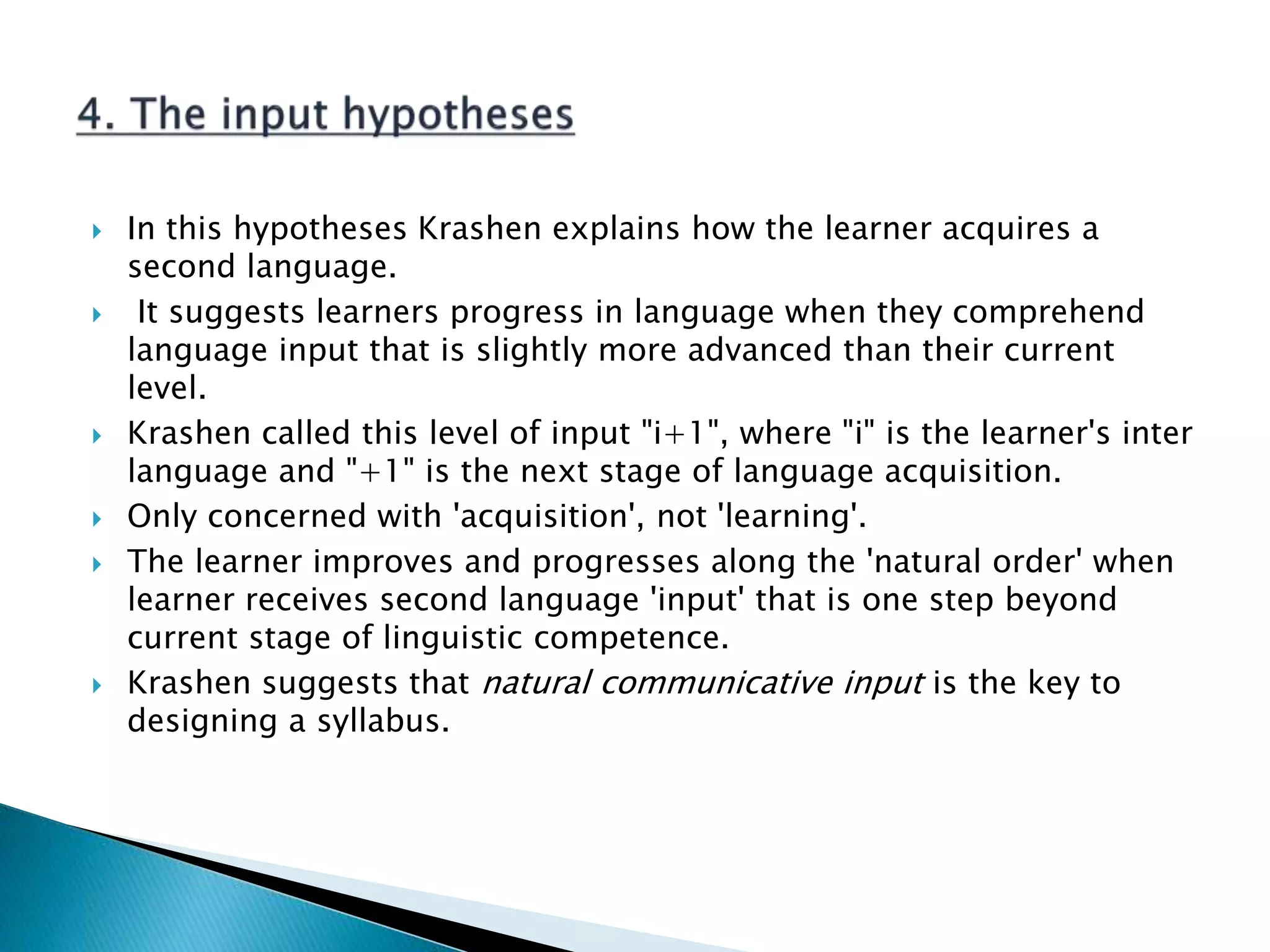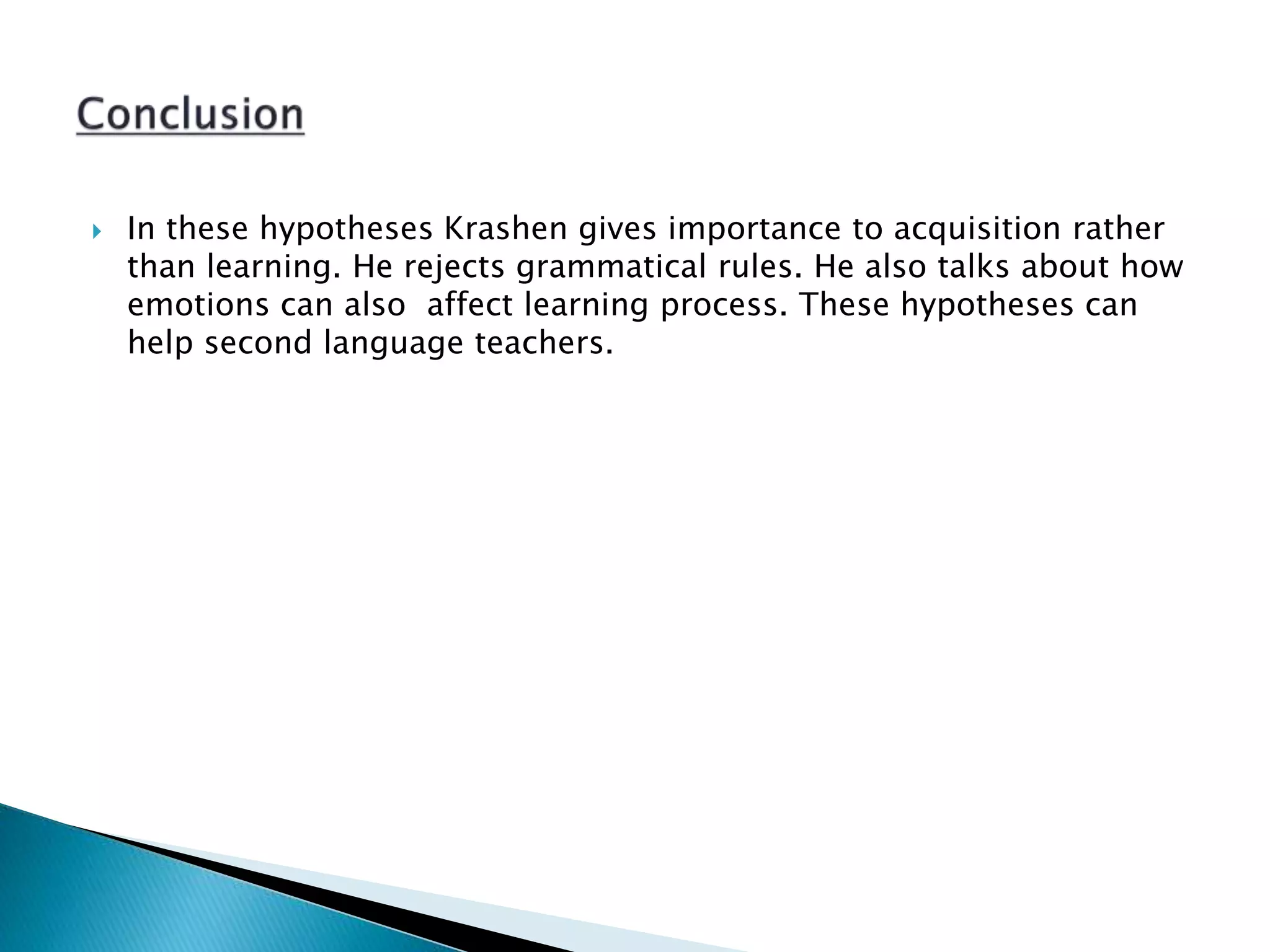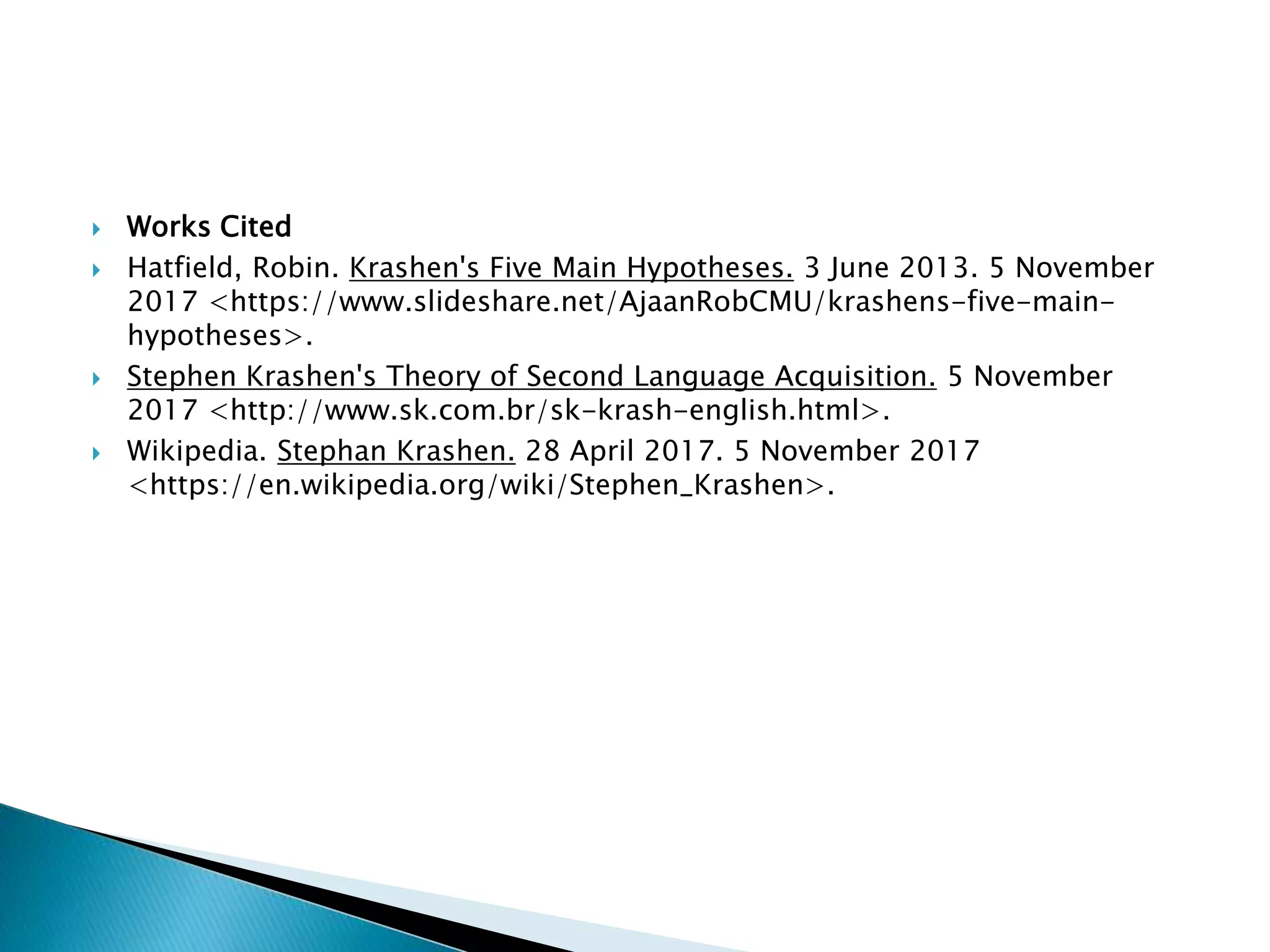Stephen Krashen developed five hypotheses about second language acquisition:
1. The Acquisition-Learning Hypothesis distinguishes natural language acquisition from conscious learning. Acquisition is unconscious while learning involves formal instruction and conscious learning of rules.
2. The Monitor Hypothesis states that acquired competence initiates utterances while learned competence acts as an editor. Over-reliance on editing can hinder language production.
3. The Natural Order Hypothesis posits that certain grammatical structures are acquired earlier than others in a predictable order regardless of factors like age or language.
4. The Input Hypothesis claims we acquire language by understanding input that is slightly beyond our current level of competence.
5.
